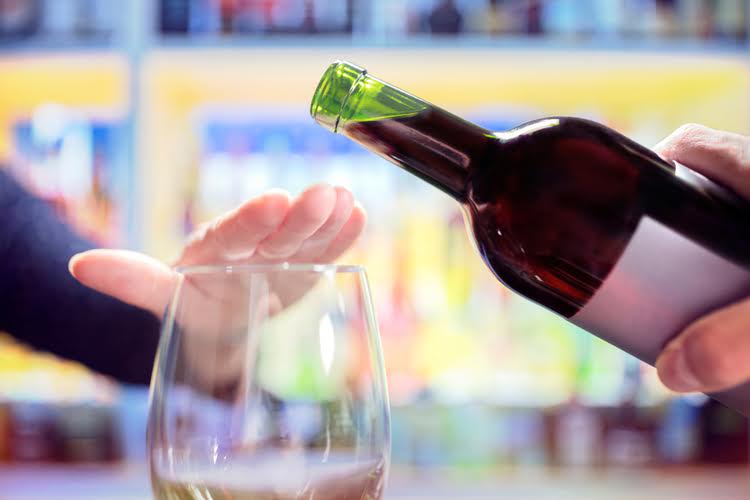They can help you understand your alcohol consumption patterns and teach you healthy coping skills that don’t jeopardize your sobriety and health. These skills help people to work through challenges, rather than mask them. With a lack of healthy coping mechanisms, anxiety, depression, and other mental health disorders are not uncommon among people who use alcohol to cope.
Why People Drink Alcohol as a Coping Mechanism
Findings suggest that, when under stress, individuals who both report coping motives and a lack of adaptive coping skills are apt to drink more than individuals with relatively more adaptive coping skills. Such individuals may need to be prioritized for intervention, and/or may be at particular risk for relapse once amphetamine addiction treatment in treatment. If enrolled in treatment, focus may be placed on identifying high risk situations in which alcohol is likely to be used as a means to cope and increasing one’s use of other more adaptive coping skills (e.g., planning or active coping) as a substitute for alcohol. In line with this suggestion, various types of skills training approaches have been used as treatment for alcohol use disorders (Larimer & Cronce, 2007; Longabaugh & Morgenstern, 1999; Morgenstern & Longabaugh, 2000; Murphy, et al., 2001).

Alcohol and Mental Health: A Counterproductive Cycle
Coping with alcohol can increase anxiety symptoms due to https://acapassociados.pt/100-quotes-from-a-a-meetings/ the constant pursuit of relaxation felt when buzzed. It causes a disconnection between your mind, body, and spirit, which may leave you feeling more in pain than before. In addition to the individual trauma each of us carries, we are all experiencing the collective trauma of the time we live in, which can make it hard to find a healthy coping mechanism that works for us. Finding a way to feel better as soon as possible is the road most often taken, and this usually involves alcohol. If someone doesn’t learn how to cope with these emotions early in life, they’ll struggle in adolescence and adulthood when they have easy access to substances. Adaptive coping skills allow someone to deal with stress using personal growth, optimism, and flexibility.
3. Interactive Influences of Coping Motives and Adaptive Coping on Alcohol Use
Accordingly, understanding the individual and contextual-level factors that contribute to alcohol use is an important endeavor. As reviewed below, several studies have been conducted to examine how drinking motives (why one drinks) and coping styles (how one copes with stress and negative affect) may confer risk for alcohol problems. Both constructs may be modifiable through intervention, making understanding their influence on alcohol use particularly important for prevention efforts.
Each person’s treatment will have individual differences, as some people deal with anxiety or depression. A key factor that needs to be addressed is your addictive behaviors and how they can be changed. However, alcohol triggers our bodies to release higher amounts of cortisol. When alcohol shifts the average hormonal balance, the body changes its stress responses. Whether or not substance abuse and/or addiction run in your family, all people experience increased tolerance for alcohol the more and longer that they drink. Participants completed a self-report survey about their alcohol as a coping mechanism alcohol use at ages 17, 22, and 23.
- Addressing the other compulsive behaviors and unhealthy coping mechanisms is the only way to fully recover.
- This conceptual model suggests that normalizing the brain and body’s stress and motivational coping responses may reduce risk of hazardous drinking.
- Such drinking to cope may, in turn, facilitate the development of depression as drinkers come to rely more heavily on alcohol as a maladaptive coping behavior.
This reinforcement mechanism encourages your brain to repeat the activity that led to the dopamine release—in this case, consuming alcohol. From heartbreak and loss to work stress and family disagreements, we all have to deal with stuff that challenges us to our core. And in response, we each have unique methods of weathering these emotional storms. Funding for this study was provided by NIAAA grant R21AA16289 to Dr. Suzanne E. Thomas NIAAA had no role in the study design, collection, analysis or interpretation of the data, writing the manuscript, or the decision to submit the paper for publication. Our dedicated team is here to provide a safe, judgment-free space where you can talk openly and honestly. No matter where you are in your recovery journey, our levels of care are personalized to your unique needs.
Sample storage, biochemical analyses and data preparation

Studies have shown that genes play a significant role in developing AUD, specifically those that affect alcohol metabolism. Therefore, if AUD runs in your family, you should watch your alcohol consumption; doing this will lessen the chance of developing the disorder. Swarnakshi is a content writer at Calm sage, who believes in a healthier lifestyle for mind and body. A fighter and survivor of depression, she strives to reach and help spread awareness on ending the stigma surrounding mental health issues.
Alcohol becomes a crutch and a barrier to developing more effective coping strategies. First, depressive symptoms did not significantly predict either alcohol use or coping between ages 17 and 22. Depressive symptoms at age 22 did, however, predict greater substance use coping at age 23. Similarly, substance use coping at age 17 did not predict depression or alcohol use at age 22, but coping at age 22 did predict both greater depression and alcohol use at age 23. Alcohol use at age 17 was significantly related to both greater depressive symptoms and substance use coping at age 22, while alcohol use at age 22 was related to greater substance use coping at age 23, but not to depressive symptoms at age 23.
Participants were monitored during the challenge and were not discharged from the challenge until blood alcohol levels dropped below 0.03 mg%. The combined contents of glass A and B were measured (in mls) prior to and following the procedure and a difference score was obtained to reflect how much beer was consumed. The primary dependent variable for in-lab drinking in the present study was amount of alcohol consumed (mls). This short blog discusses signs you’re using alcohol as a coping mechanism, the dangers and long-term effects of alcohol abuse, alternative coping strategies, and the benefits of talking to a professional. The idea of using alcohol as a coping mechanism can slip past most people’s minds, even if they regularly drink alcohol.
